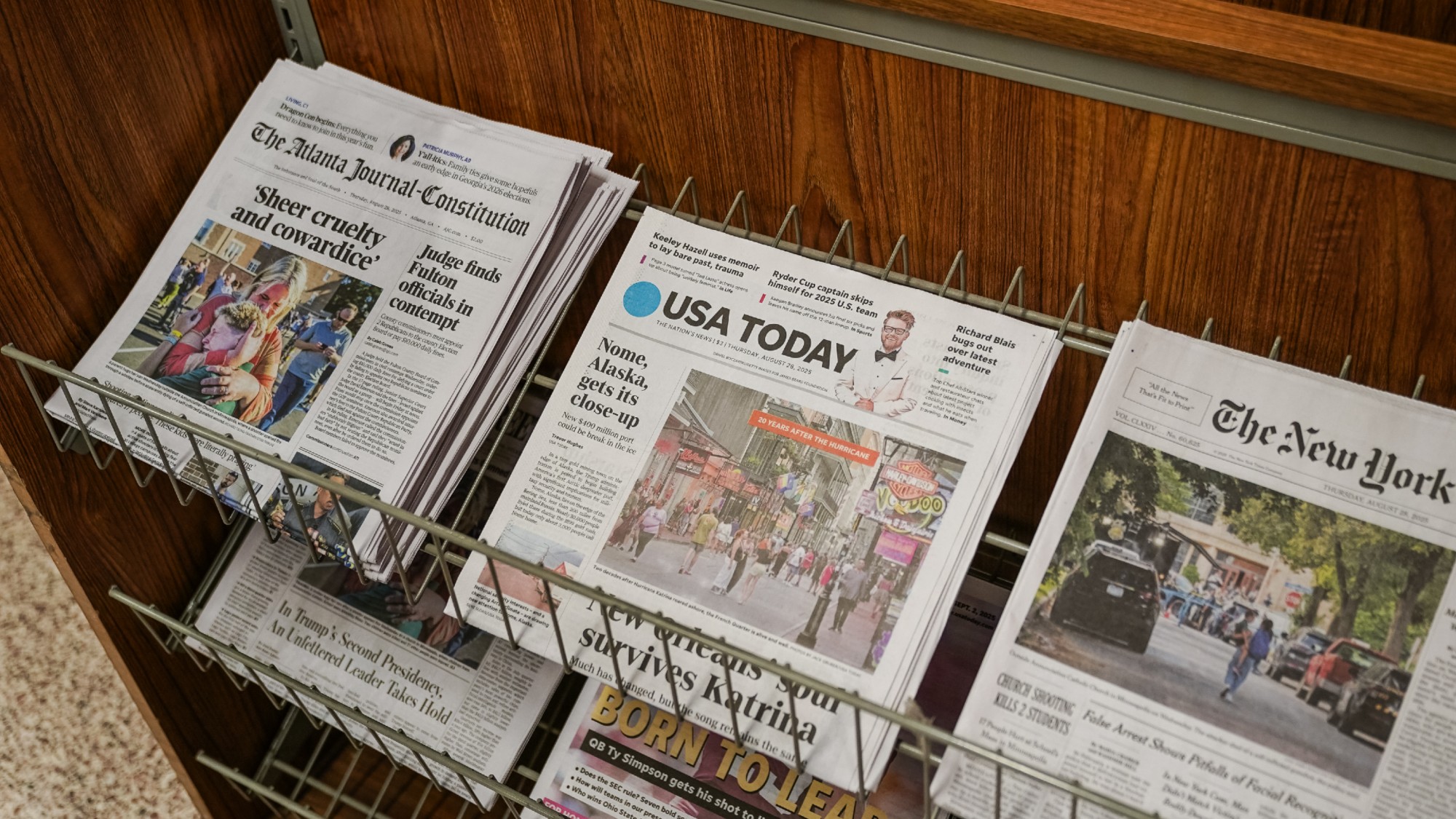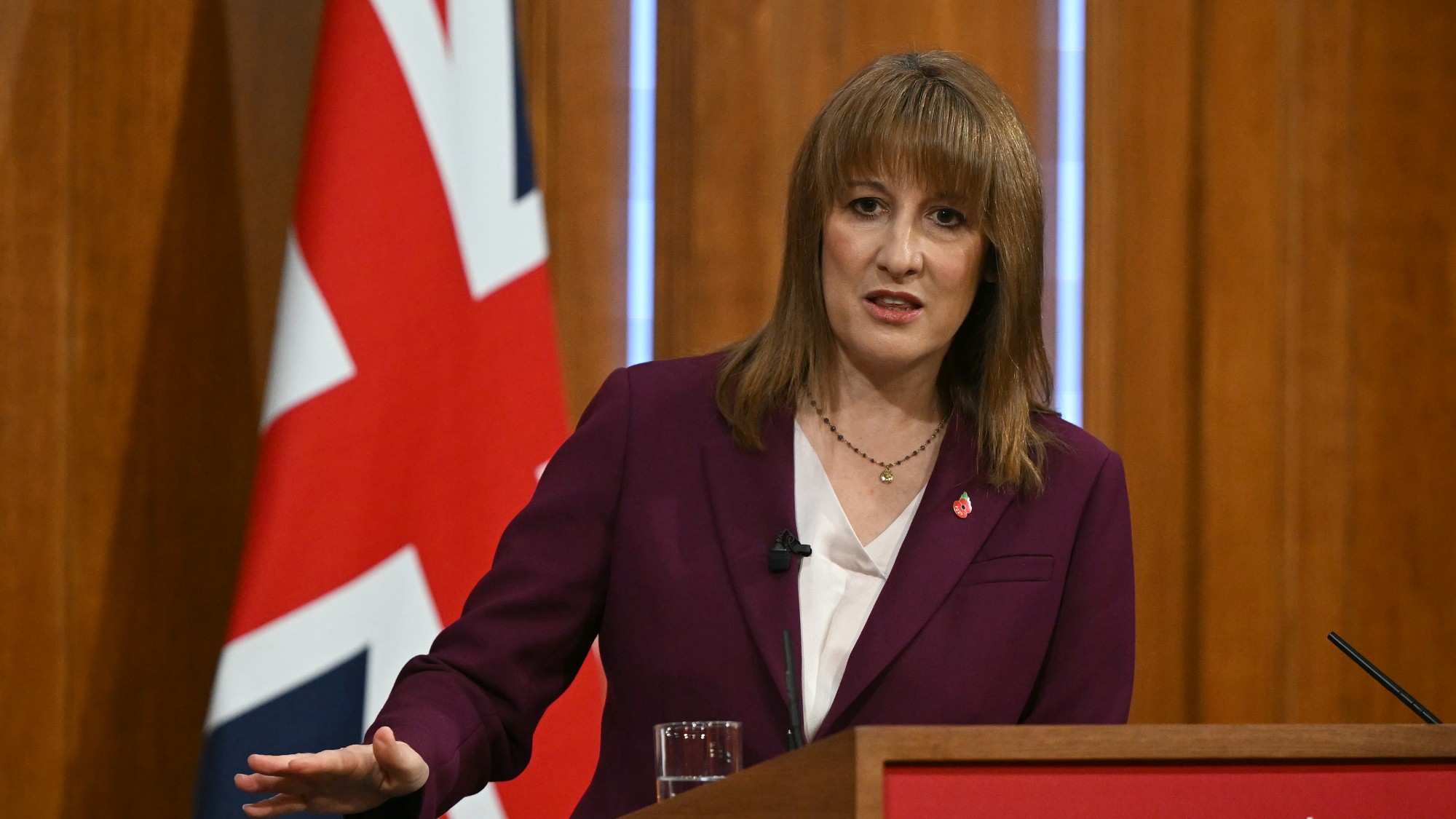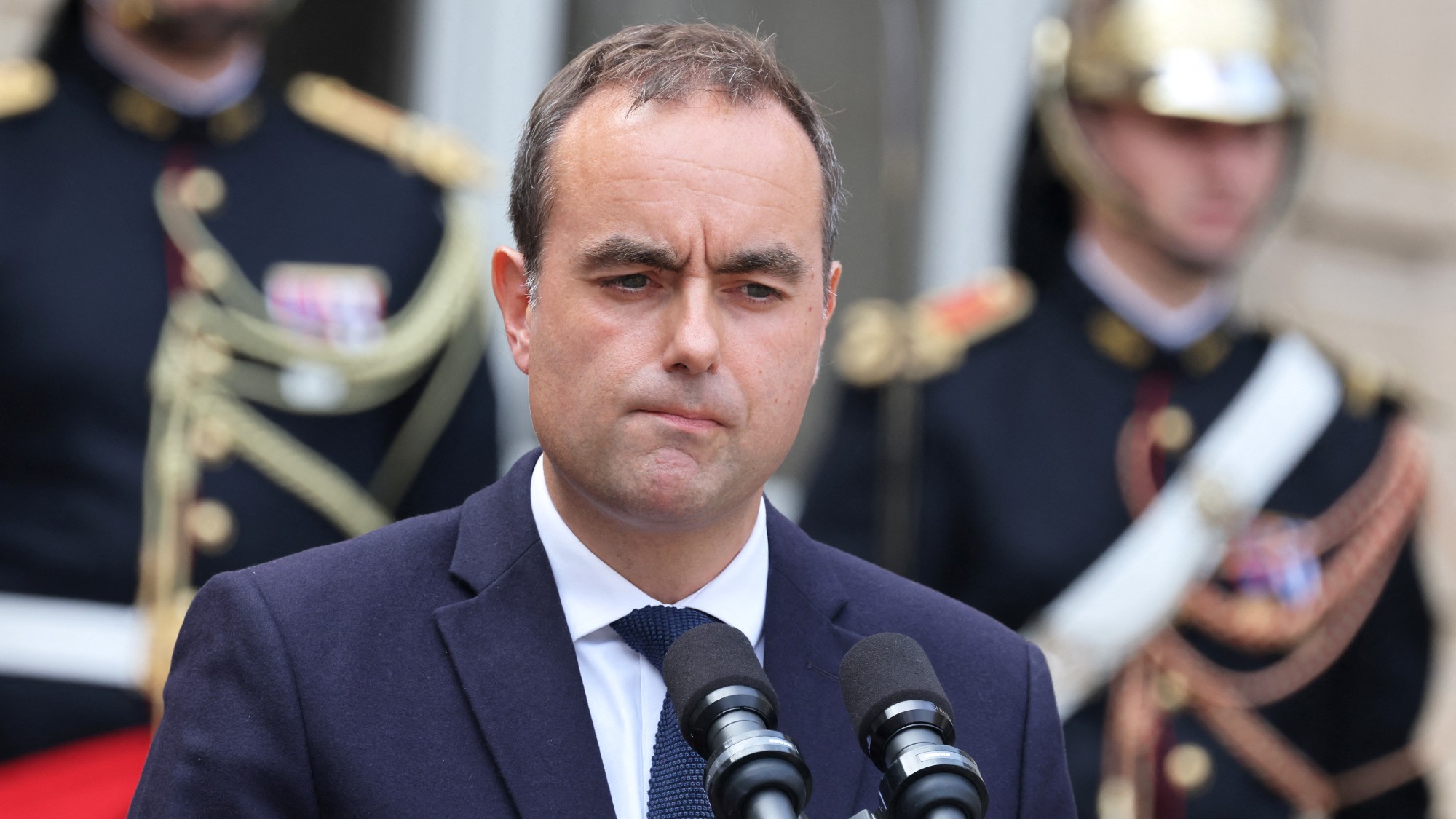What is stamp duty and why is it being cut?
Government is expected to cut ‘hated’ house-buying tax to ‘encourage growth’

A free daily email with the biggest news stories of the day – and the best features from TheWeek.com
You are now subscribed
Your newsletter sign-up was successful
Chancellor Kwasi Kwarteng is expected to announce radical plans to cut stamp duty in his mini-budget on Friday in a bid to drive economic growth, according to reports.
Liz Truss, the prime minister, has previously argued that lowering the tax – which is payable on property purchases over £125,000 – is “critical” to economic growth, said The Times, but critics say the move would drive up house prices.
The new PM has pledged to review all tax rates in “her latest break from Treasury orthodoxy”, said The Guardian, and Whitehall sources said that cuts to stamp duty are the “rabbit” in the mini-budget that Kwarteng will announce on Friday.
The Week
Escape your echo chamber. Get the facts behind the news, plus analysis from multiple perspectives.

Sign up for The Week's Free Newsletters
From our morning news briefing to a weekly Good News Newsletter, get the best of The Week delivered directly to your inbox.
From our morning news briefing to a weekly Good News Newsletter, get the best of The Week delivered directly to your inbox.
What is stamp duty?
Stamp duty is a tax you might have to pay when you buy a new home. It is paid by buyers of land or property in England and Northern Ireland, with higher rates above certain thresholds.
Under the current system, no stamp duty is paid on the first £125,000 of any property purchase. Between £125,001 and £250,000 stamp duty is charged at 2%; from £250,001 to £925,000 it is 5%; and from £925,001 to £1.5m it’s 10%. For any purchase above £1.5m, the levy is 12%.
Meanwhile, for first-time buyers the threshold at which stamp duty is paid is £300,000. Separate land taxes apply in Scotland and Wales.
Why is it being cut?
Truss believes that cutting stamp duty will “encourage economic growth” by allowing “more people to move and enabling first-time buyers to get on the property ladder”, said The Times.
A free daily email with the biggest news stories of the day – and the best features from TheWeek.com
Opposition to stamp duty is long-standing. Some economists regard it as a “bad tax”, said The Guardian, because it “discourages mobility, as it is paid by homebuyers rather than sellers”.
Ben Zaranko, an economist at the Institute for Fiscal Studies, told The Times that there is “not much to be said in its defence apart from the fact that it raises quite a lot of revenue”.
The Telegraph said that cutting the “hated” levy could solve the nation’s housing crisis. Tom Clougherty, of the Centre for Policy Studies, told the paper that the move would boost house sales, enable a more efficient use of housing stock by removing an obstacle to downsizing, and boost housebuilding in the long term.
“It would be a watershed moment for the housing market. It will liberate supply and boost productivity,” Clougherty said.
How will it work?
Truss could adjust the nil-rate stamp duty threshold to reflect recent house price growth. For instance, said The Telegraph, “if the nil-rate band was raised to £225,000, more than three times as many sales in England would be tax-free”, meaning an increase from 12% to 41% of sales. Other stamp duty bands could also be raised, saving people tax on more costly house purchases.
Is there any downside to cutting stamp duty?
Analysts have warned that reducing buyers’ moving costs could create unsustainable house price inflation in the short term.
Andrew Wishart, of Capital Economics, told The Telegraph that “by offsetting the rising cost of mortgages, a stamp duty holiday could extend the house price boom by a few months”, but that, he warned, “would take prices to a level where a correction would be inevitable”.
Also, cutting stamp duty would “come with a hefty price tag, at a time when the government is preparing to launch billions of pounds in tax cuts on business profits, national insurance and freezing energy prices”, said The Guardian, as property transaction taxes bring in more than £15bn a year for the exchequer.
Sam Coates, deputy political editor of Sky News, noted that Truss’s plan sets up a contrast between the government and the Bank of England, because “while the government is borrowing tens of billions to pump prime growth and increase demand, the Bank of England is doing the opposite”, by raising interest rates “to dampen demand and reduce inflation”.
-
 Nordic combined: the Winter Olympics sport that bars women
Nordic combined: the Winter Olympics sport that bars womenIn The Spotlight Female athletes excluded from participation in demanding double-discipline events at Milano-Cortina
-
 Samurai: a ‘blockbuster’ display of Japanese heritage
Samurai: a ‘blockbuster’ display of Japanese heritageThe Week Recommends British Museum show offers a ‘scintillating journey’ through ‘a world of gore, power and artistic beauty’
-
 BMW iX3: a ‘revolution’ for the German car brand
BMW iX3: a ‘revolution’ for the German car brandThe Week Recommends The electric SUV promises a ‘great balance between ride comfort and driving fun’
-
 How corrupt is the UK?
How corrupt is the UK?The Explainer Decline in standards ‘risks becoming a defining feature of our political culture’ as Britain falls to lowest ever score on global index
-
 The high street: Britain’s next political battleground?
The high street: Britain’s next political battleground?In the Spotlight Mass closure of shops and influx of organised crime are fuelling voter anger, and offer an opening for Reform UK
-
 ‘Journalism is on notice’
‘Journalism is on notice’Instant Opinion Opinion, comment and editorials of the day
-
 ‘City leaders must recognize its residents as part of its lifeblood’
‘City leaders must recognize its residents as part of its lifeblood’Instant Opinion Opinion, comment and editorials of the day
-
 Is a Reform-Tory pact becoming more likely?
Is a Reform-Tory pact becoming more likely?Today’s Big Question Nigel Farage’s party is ahead in the polls but still falls well short of a Commons majority, while Conservatives are still losing MPs to Reform
-
 Will Rachel Reeves’ tax U-turn be disastrous?
Will Rachel Reeves’ tax U-turn be disastrous?Today’s Big Question The chancellor scraps income tax rises for a ‘smorgasbord’ of smaller revenue-raising options
-
 Taking the low road: why the SNP is still standing strong
Taking the low road: why the SNP is still standing strongTalking Point Party is on track for a fifth consecutive victory in May’s Holyrood election, despite controversies and plummeting support
-
 Will billionaires kill France’s proposed wealth tax?
Will billionaires kill France’s proposed wealth tax?Today's Big Question In Paris, a preview of the debate over Zohran Mamdani’s NYC proposal